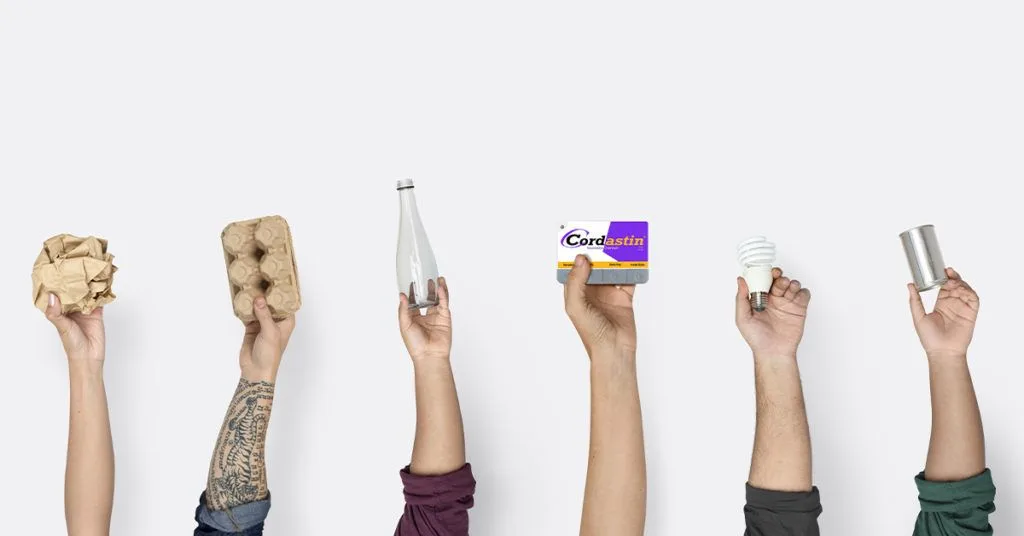Home / Blogs / Legacy Blog /
Swittons Helps Boost Sustainability Initiatives for Pharma
As the world’s population continues age, and modern healthcare services become a reality for many, demand for pharma products continues to skyrocket. All of which are great for the industry, but potentially not the greatest for the environment. The root cause being energy consumption.
It takes a lot of energy to run manufacturing facilities, power corporate offices, and keep teams of sales representatives burning up the blacktop. All three of which are necessary, unavoidable costs of doing business for pharma commercial organizations.
So, what can companies do to keep operations flowing while also being mindful of their carbon footprint?

Here are three initiatives that can help your organization boost its sustainability efforts:
1). Bring more of your outside sales inside:
According to the EPA, a typical passenger vehicle emits about 4.6 metric tons1 of carbon dioxide per year. In total, vehicles account for 26% of greenhouse gas emissions in the U.S.
Considering that the average outside sales representative spends roughly 75% of their time on the road, it is safe to assume that their carbon footprint is roughly three to four times that of the average person. This accounts for 13.8 to 18.4 metric tons of carbon dioxide per year, per outside sales representative.
Or in other terms, roughly 39,000 to 52,000 miles per year – which equates to somewhere between 2,166 and 2,888 gallons of gas per year.
By reducing the amount of time sales reps spend on the road, pharma companies can significantly reduce their carbon footprint, fuel consumption and costs associated with doing business.
Swittons is the perfect solution for remote engagement. Not only can the devices be custom branded, but also by simply touching a button, physicians can request samples, schedule sales visits, book medical science liaison (MSL) consultations, and access important medical information. This significantly reduces unnecessary and unproductive visits.
In addition, given the recent COVID-19 pandemic, and the fact that only 44% of physicians still allow sales reps access, there is no better time to switch to remote technologies for physician engagement. The lack of personal selling time is compounded by pharma code guidelines disallowing any branding of non-medically relevant items within the physician office to serve as a reminder for their drug.
The good news is, given their functionality, Swittons are medically relevant items!
With Swittons, sales teams can be constantly present without the carbon footprint or regulatory hustles.

2). Encourage product development that includes waste reduction:
The effectiveness, sterility, and safety standards of the pharmaceutical industry provide some barriers to managing waste reduction. However, in recent years, pharma organizations and medical device companies have been partnering to drive innovation2 in many areas, including sustainability.
Combining pharma products with medical device delivery systems enables products to become simpler and more convenient – ultimately, requiring less packaging. An example of this is the work carried out by both pharma and medical device manufacturers in the implantable devices space.
Pill bottles, for example, can now be equipped with digital inserts that remind patients to take their medication, and are able to be monitored remotely by a doctor to ensure patients take the correct dosages.
As healthcare treatments become more complex, pharma products and medical devices will continue to morph into one simple, easy product. This will help both industries to become more sustainable through consolidation. The result of this approach is better patient compliance, unique drug delivery methods, and improved package integrity and product safety.
3). Invest in renewable energy and energy efficiency:
To meet the demand for more pharmaceutical products, thanks to the explosion of personalized products, biologics, and the use of generics, micro runs are now commonplace in product manufacturing. Although efficient from a product inventory perspective, these micro runs require product lines to run less efficiently from an energy perspective.
Micro runs require lines to be stopped often, for small tweaks (more tablets or different dosages), and during that time the lights are on, the line is operational but not producing. And the additional energy required for all these things presents a challenge to sustainability. Manufacturers must now re-evaluate their operations for opportunities to gain back efficiencies, energy, and utility savings.

There are a lot of steps pharmaceutical companies can take to reduce the amount of power, air, or water used on a line. For example, reducing the amount of heat used to shrink a lid is considered to be sustainable, as is looking at ways to reduce water consumption, or to optimizing utility usage for things like heating, ventilation, and air conditioning.
Giving consideration to clean technologies, such as solar, is another big step in the direction of sustainability.
For pharmaceutical organizations, sustainability will always be a challenge. However, implementing a multifaceted approach, including some of the suggestions above, will provide results the environment will be thankful for.
If you’d like to learn more about not only how Swittons can help bridge the communication gap between your sales reps and physicians, but also how you can boost sustainability with the device, click below to speak with us for free.
Explore More Relevant Articles on P360
- Swittons Announces Microsoft Teams Integration & New Fingerprint Model
- Are You Using Your Whitespace as a Pharma Marketing Incubator? – From a Former Sales Rep
- HCP Office & Patient Safety is the new Marketing Differentiator – Pharma needs to Follow
- Why Remote Communication with Physicians is Needed NOW- From a Sales Executive
- Swittons Featured On NJBIZ
References
1: https://www.epa.gov/greenvehicles/greenhouse-gas-emissions-typical-passenger-vehicle
2: https://www.prescouter.com/2018/04/pharma-medtech-collaborations/



